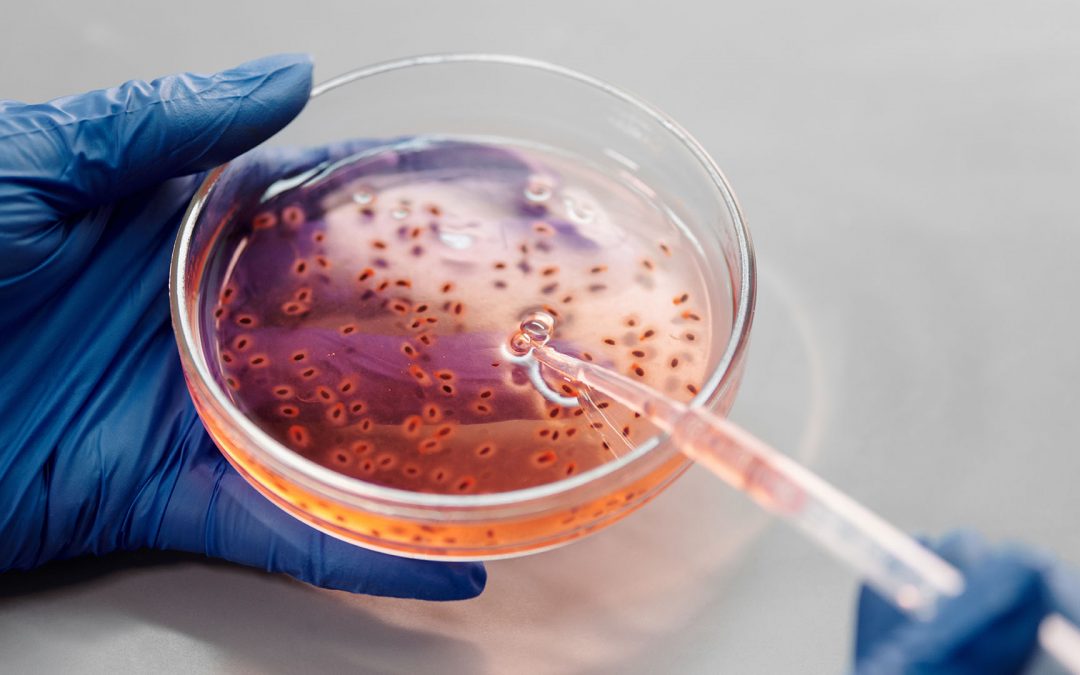Cleanings near me: Cleaners can be effective in killing bacteria. They contain strong chemicals that work to break down the structure of bacterial cells and inhibit their growth.
You stand in your kitchen, contemplating the task at hand. You’ve been feeling under the weather for a few days and you can’t shake the feeling. It’s because of all the bacteria lurking around your home. You know that these germs can be dangerous. It could potentially make your health problems even worse. After doing some research, you decide to take matters into your own hands and start cleaning up your home.
The first thing you do is arm yourself with all the knowledge you need to make sure you get rid of as many germs as possible. You read up on what types of cleaners are best for killing bacteria and learn about which chemicals are most effective in destroying them. You also study some tips for mixing solutions at home, as well as which products are recommended by experts for killing bacteria.
Bacteria is often seen as a dirty word. Something that we want to get rid of as quickly as possible. And while it’s true that bacteria can cause all sorts of health problems. It’s also important to remember that not all bacteria are bad. Some types of bacteria are necessary for human life.
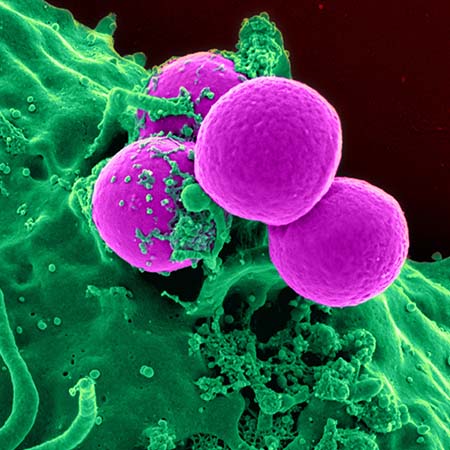
Not all bacteria are bad
What are bacteria and why do we need to kill it
Bacteria are microscopic organisms made up of single cells. These cells are classified as prokaryotes, meaning they do not have a nucleus or any other membranous organelles. Bacteria can be beneficial and detrimental to living organisms and the environment. They have a wide variety of uses in different industries such as agriculture, food production, medicine, and bioremediation. For homeowners, it is important to understand why bacteria need to be killed before they cause harm.
Bacteria exist naturally in our environment and can often be found on surfaces like countertops, sinks, door handles and more. When these bacteria come into contact with humans or animals it can cause serious illnesses including diarrhoea, flu-like symptoms, skin infections and food poisoning. It is therefore important for homeowners to regularly clean and disinfect areas where bacteria could be present to prevent cross-contamination between people and animals.
It is also important to understand how bacteria grow so they can properly manage their cleaning routines. Bacteria can rapidly reproduce through binary fission. This means that one cell divides into two identical cells in a short amount of time resulting in exponential growth when conditions permit it. High temperatures (37°C) are optimal for bacterial growth so keeping surfaces cool by regularly wiping them down can help reduce their spread. More about bacteria here.
What are good bacteria vs bad bacteria?
Good bacteria and bad bacteria are general terms used to describe the types of bacteria that exist in our environment. Good bacteria, also known as probiotics, are beneficial to humans, animals and the environment. They can help us digest food, reduce inflammation and maintain a healthy balance of microorganisms in our bodies.
The human body contains trillions of bacteria, most of which live in our intestines and help us digest food, fight infection, protect from disease and even produce vitamins like vitamin K2. We need both good and bad bacteria in our bodies to maintain a healthy balance of microorganisms. Good bacteria are found naturally in foods such as yoghurt, kefir, sauerkraut and kimchi.
Bad bacteria are typically those that cause disease or infection. They can contaminate food or water, spread from person to person or enter through wounds on the skin. Bad bacteria tend to thrive in moist environments like your mouth, nose and gut. That is why it’s important to wash your hands regularly with soap and water after touching these areas.
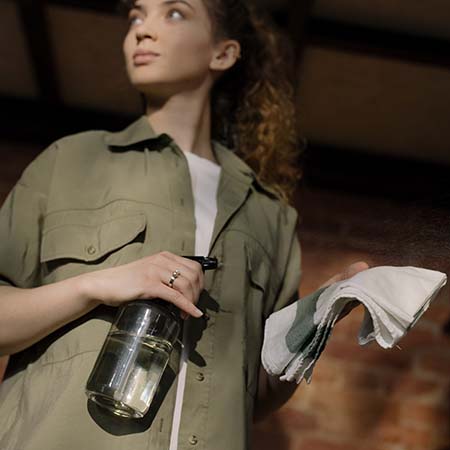
Solutions can kill the bacteria on a cellular level
How does the chemical or solution kill bacteria?
Cleaners are essential products for home owners to ensure a sanitary environment. Cleaners can be effective in killing bacteria. They contain strong chemicals that work to break down the structure of bacterial cells and inhibit their growth.
For example, cleaners such as bleach contain sodium hypochlorite which is an active ingredient that disinfects surfaces. It oxidizes proteins and lipids of the membrane walls of the bacterial cell, leading to eventual cell death. This disruption causes holes to form in the bacterial cell wall, allowing ions, molecules and even antibiotics to enter the cell and cause further damage.
Additionally, certain cleaners may also contain surfactants which act like soaps by lifting away dirt and oils from surfaces where bacteria cling onto. Thus, making it easier for the active ingredients to work directly on them. Furthermore, some cleaners may also have anti-microbial agents such as silver ions that target specific types of bacteria and inhibit their growth. This prevents them from reproducing or spreading any further.
In summary, cleaners are effective solutions for eliminating bacteria in homes. They can effectively break down and prevent their proliferation with various active ingredients or anti-microbial agents depending on the product used.
The different types of chemicals and solutions used to clean
The best chemicals to use to kill bacteria in a house are those that have active ingredients such as chlorine, hydrogen peroxide, and quaternary ammonium compounds (QACs). Chlorine is the most commonly used chemical for disinfecting surfaces and killing germs. It can also be corrosive to some materials and cause skin irritation.
Hydrogen peroxide is safe to use on most surfaces and is effective at killing bacteria, fungi, and viruses. QACs are widely used in commercial cleaners and have been proven to be effective against Staphylococcus aureus (Staph) bacteria.
When using any chemical cleaner or disinfectant it’s important to read the label carefully before using it. This will provide important information such as the active ingredient(s), dilution ratios (if required) and contact times needed for the product to be effective. Additionally, always wear gloves when handling any chemical solutions as this will help protect your skin from irritation caused by certain ingredients in the product.
When using chlorine-based products it’s important to make sure that you’re following proper safety procedures. Again, wear eye protection, a mask or even a respirator, rubber gloves and a long-sleeved shirt. Additionally, avoid mixing chlorine with other cleaning products as this could create toxic fumes which can be hazardous to your health if inhaled or ingested.
When using hydrogen peroxide-based products again, ensure that you’re wearing protective clothing and goggles as hydrogen peroxide can cause eye irritation if not handled correctly.
Finally, when using QAC-based products make sure that you’re giving them enough time to work. 15 minutes of contact time is recommended for maximum effectiveness against Staph bacteria.
It’s also important to remember that not all bacteria are bad. Avoid overusing these types of products as they may kill both good and bad bacteria which could disrupt the natural balance of microorganisms in your home environment.
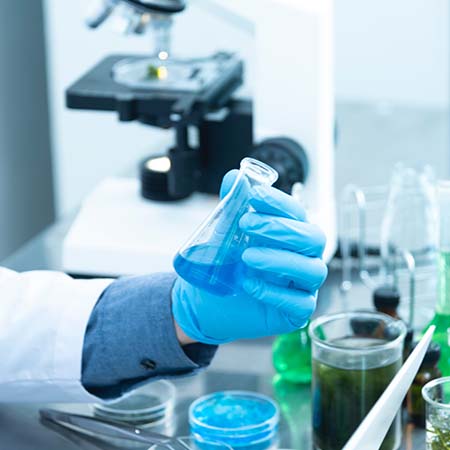
Mixing your own cleaning solution is not rocket science!
Tips on how to mix your solutions
The best homemade bacteria cleaning solution for homeowners is a mixture of vinegar and water. Vinegar is a natural disinfectant that has been proven to be effective at killing certain strains of bacteria such as E. coli, Salmonella, and Staphylococcus.
To make your solution, combine 1 cup of white vinegar with 4 cups of warm water in a spray bottle and shake well to mix. The solution should be used within two hours of being mixed and can be used on a variety of surfaces including countertops, sinks, toilets, floors and more.
Vinegar works by breaking down the cell walls of bacterial cells which leads to their death. It also creates an acidic environment that is inhospitable to many types of bacteria. Additionally, it can also help remove dirt, grime and other debris that can harbour bacteria in hard-to-reach areas such as grout or tile crevices.
When using any homemade cleaner it’s important to read the label carefully before use. This will provide important information about safety precautions such as wearing gloves and eye protection when handling any chemical solutions.
It’s important to remember that not all bacteria are bad. Avoid overusing these types of products as they may kill both good and bad bacteria. This could disrupt the natural balance of microorganisms in your home environment.
Using vinegar as part of your regular cleaning routine is an easy way for homeowners to keep their homes free from harmful bacteria without having to invest in expensive commercial cleaners or chemicals.
Additionally, it’s safe for use around pets and children when correctly diluted according to the provided instructions. When using this homemade cleaner on high-touch surfaces such as doorknobs or light switches it’s important to let it sit for at least 15 minutes. Afterward, wipe dry with a clean cloth or paper towel for the disinfectant properties to take effect effectively against harmful bacteria.
Conclusion
Cleaning your home regularly with household cleaners is an important part of keeping your family safe from harmful bacteria. While commercial products can be expensive and even hazardous to use. There are a variety of homemade solutions that can effectively kill bacteria while also being safe around pets and children. Vinegar is a natural disinfectant which has been proven to be effective at killing certain strains of bacteria such as E. coli, Salmonella, and Staphylococcus.
Additionally, it’s important to remember that not all bacteria are bad so avoid overusing these types of products. They may kill both good and bad bacteria which could disrupt the natural balance of microorganisms in your home environment.
Finally, always wear gloves when handling any chemical solutions as well as be sure to read the label for instructions on diluting and usage. With these tips in mind, homeowners can easily make the necessary steps towards creating a safe and healthy environment for their families.
If you enjoyed this article be sure to check out our other ones like: “5 Clever ways to clean your house using baking soda” and “The best way to clean tile grout” – Cleanings near me.
Frequently Asked Questions
1. What are some of the dangers of using cleaners with bacteria-killing properties?
While cleaners with bacteria-killing properties, such as chemical-based cleaners or all-natural ingredients, can be effective in killing germs, there are some potential risks to consider.
For example, many of these options contain harsh chemicals that can irritate if they come into contact with the skin. Additionally, without proper ventilation and protective equipment like gloves and even respirators, both chemical and natural cleaners can cause respiratory issues such as asthma.
Lastly, bacteria-killing cleaners should never be mixed as this could create hazardous fumes that are dangerous both to breathe in and work around. Cleaning with caution is key when using a cleaner potent enough to kill bacteria.
2. How can I prevent the spread of bacteria in my home?
One of the single most effective ways to prevent the spread of bacteria in your home is with good hygiene. You can start by washing your hands regularly, especially after eating or coming back from outside.
Additionally, you should be cleaning common surfaces like doorknobs and countertops with disinfectant regularly to reduce bacteria buildup.
Lastly, avoid sharing items like dishes, cups and utensils to guarantee that everyone is using a freshly washed item. Taking these simple steps can go a long way towards preventing the spread of bacteria in your home.
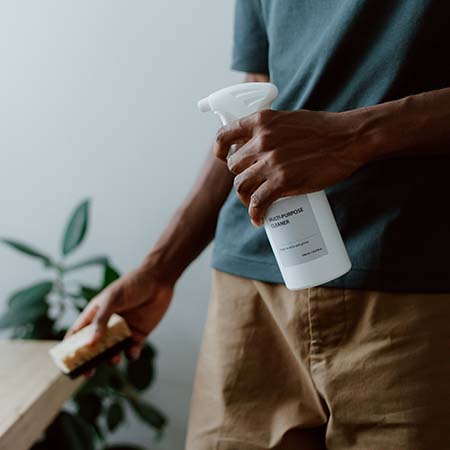
Cleanings near me: if you’d like us do handle all of your cleaning, drop us a line!
Cleanings near me
The Cleaning Tribe is the perfect solution for homeowners looking to rid their homes of dangerous bacteria while also maintaining a safe and healthy environment.
With our cleaning products and techniques, we can effectively reduce the presence of harmful microorganisms in your home, so you can have peace of mind knowing that your family is safe.
Get a quote in sixty seconds here, or call us on our live 24/7 number at 416-292-0032 – Cleanings near me.
